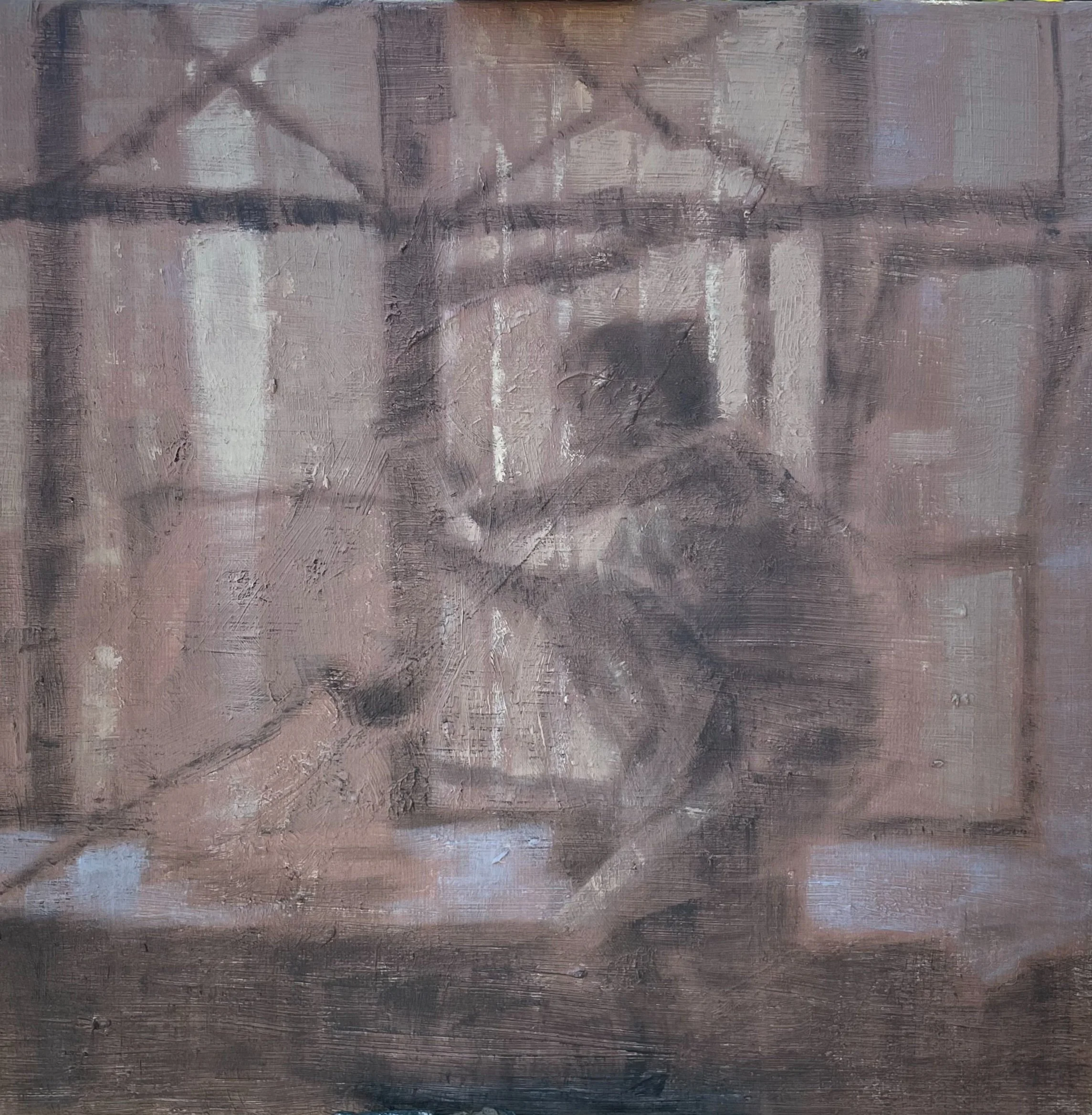Anonymous Sentiment
Viewing Sean Martin’s work, I get the sense the moment has passed. A lipgloss kiss is drying; I remember the look of your thumbs but not the rest of your fingers, where we were is not that important. A feeling, on reflection, I no longer understand.
Where does feeling occur? Feeling might be entirely contained within ourselves. It might instead be expelled from us, emanating in the way some theories of vision postulate that seeing forces are emitted by persons. In Medieval England, crying was thought by some to be the product of God resting within human bodies, whilst there causing bubbles of divinity to form and swell out of the body. Mental acts can have casual efficacy: a light turning on is a result of me wanting to see you better. It makes me feel good to know someone is thinking of me: I feel the positive effects of being cared for within my own head, but also on my skin, in the same way I feel when the light falls nicely. When I think about care's capacity to intrude upon rigid distances, I sometimes worry I am kidding myself: there must be a final epidermis.
Where does feeling reside, if meaning aint just in the head? Could feeling fill a space formed by intersubjectivity, like a zeitgeist Wittgenstenian kumbaya? Panic can be infectious. Think of crowd crushes, where unidirectional striving kills. Crush is important here - has anyone seen my guava vape? - not least because it sounds like hush. Can ‘sentiment’ be unvoiced? (It is phonetically). Sentiment might be able to detach itself from any given subject, roam around the room, be passed from friend to friend like a bong. Sentiment might be viscous, like a Medieval Allegory (a (fictionally) materially existent character in a given story). It may be sticky to the touch. Emily Dickinson talks about being ‘Nobody’. When I read Emily Dickinson’s poetry, I feel as if I am falling in deep pools of syrup. What is your first memory? I ask this question on first dates. The answer I give could be false: I am unsure if it is anything other than something I memorised after a discussion with my mother. In what way can your memories be said to exist when you can not hold them? Henri Bergson suggests we think of time as two spools with a film running between them. One spool unwinds the tape, the other does the opposite. Our future dwindles while our past grows plump. Our lives uncoil with seamless, experiential continuity. This idea, of time as celluloid, expresses how time passing (as it is for us) necessitates the conservation of the past (the wound film always remains, even if behind us). Duration, then, is memory, the extension of my past in my present.
Looking at Sean Martin’s work, there is a sense of the shared which has become unshared. Something which was there for us has moved into the realm of memory or mismemory. There is diffusement, or a xeroxing, not merely in the banal way a representation might be said to fit within the shadow of a thing which “really” existed. Your author is in one of the paintings, but only in the sense that the Nobody self she is has been forced to sit in sight for a while. A spectral sister.
In the works of Anonymous Sentiment, something has been needled at, dunked, stained: constituting an overlap in which memory can stray. Think of the many times there might be. Think of dream time; real time; the difference between the two and the lack of difference. Illusory time; obfuscatory time; the value of my time versus your time; infinitely divisible time versus instantaneous time; party-time; dire times, high-time to go home. Time before language; time before me; tea time; God’s time; post-God time; eternal time; time before capitalism; the lack of time after capitalism. And, if we accept the Derridean indictment of the present being hauntological, there is our time: the one where the future fails to arrive. What would it mean (for us) if the future was late to arrive, other than simple rudeness? It would mean, analogous to the way memories can both express missing while being missing, that the future lingers, but purely in a negative sense. The totality of time (past, present, future), at least for now, forms a palimpsest[1].
In Ancient Greece, waxed tables inscribed with ink would be erased and written over, over and over, through scraping, washing and smoothing. Such objects exist as ruins and salvages, simultaneously. Faint hints of their prior forms whistle from the back, their removal allowing the creation of the primary, present text. Sean Martin’s work is palimpsestic: memories take the place of receding text. Covering up can be an unconcealment. A spool hiding itself allows the other to come to the fore. My subjectivity is your subjectivity: together, we can hold our memories.
They are composed of eraser rubbings and pencil shavings.
Reba Nelson, 2024
[1] From the Ancient Greek [παλίμψηστος] (palímpsēstos), a compound word made up of [πάλιν] (pálin) 'again' and [ψάω] (psáō) 'scrape'.
Palimpsest, 2024
